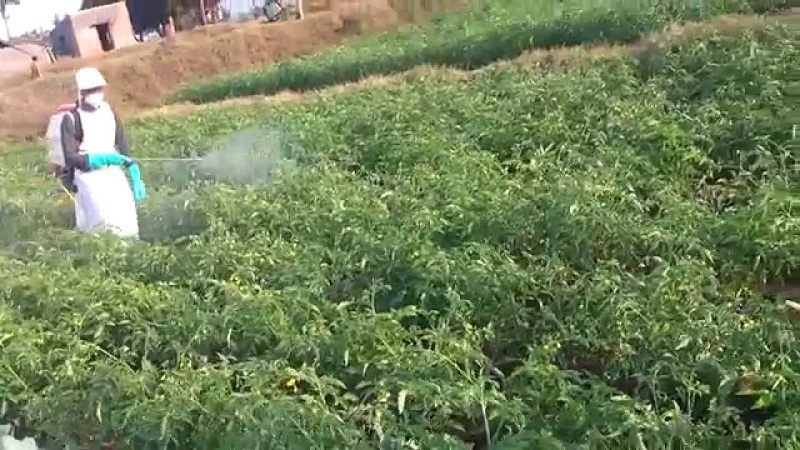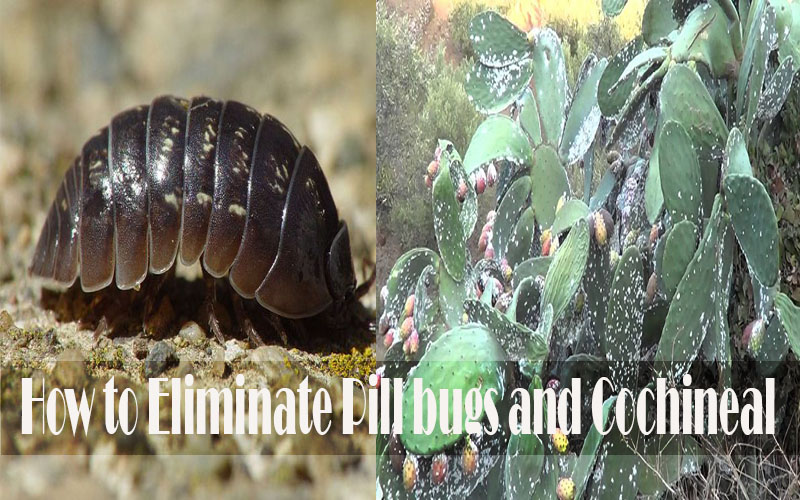The pill bugs and cochineal are harmless for the human being but terrible for our garden. They reproduce very easily and, in large colonies, can kill our plants in a short time. We give you some tips to eliminate them from your garden easily.
How to eliminate pill bugs?
Diatomaceous earth is a natural insecticide. It is made up of tiny fragments that are hollow and have a negative electrical charge. They act by drilling the insects’ bodies, causing death due to dehydration, and their continued use does not constitute any danger as is the case with chemical pesticides. Spread this type of soil around the garden and your house and that will help eliminate many specimens.

Take necessary steps
If you can, reduce the humidity in the areas where you have seen woodlice. They get into wet and dark places like under stones or in plants. If you diminish a little the watering of the affected plants you will avoid that they find a suitable place to reproduce. It also helps to put fans and/or dehumidifiers in the areas where the woodlice can be.
Frogs, toads, lizards, and birds are voracious predators of woodlice. Keep this in mind in case you have the opportunity to put artificial bird nests to attract them or if you have a pond.
Treat with insecticide all areas
Where you have seen woodlice, such as cracks or crevices. Apply twice a week until the complete disappearance of the plague. Keep in mind that after a heavy rain, you should also throw insecticide, skipping the indicated periodicity, because the rain eliminates the product from the areas doing a washed effect. You can also seal these cracks and gaps with cement, tape or wood filler.
How to eliminate the cochineal?
The cottony cochineal is another type that is very difficult to eradicate and that owes its name to the appearance similar to cotton in both color and texture.

The best home remedy to eliminate the cottony scale is alcohol. Use a cloth soaked in alcohol and clean the whole plant of mealybugs. In areas of difficult access you can use a swab used for the ears, also soaked in alcohol, or apply a mixture of alcohol and soap with a brush. Potash soap is ideal for eliminating both scale insects and other insects.
Take necessary steps
If the plant is very large or the affected areas are very large you can spray the plant with a mixture of liquid soap diluted in water and alcohol to burn. Then you must clean with a rag to finish removing the pill bugs from the affected area.
After eliminating the woodlice in one of these ways, we must use a special systemic insecticide for mealybugs and spray all the affected plants. We will repeat the application every fifteen days. It is important to check the plant from time to time to make sure there is no cochineal on the underside of the leaves or on the stem.
The insecticide nails are also a good alternative to kill cochineal, in addition to offering an advantage over others, because they do not spread through the air. The plant is watered well and the nails are stuck in the ground. These are releasing the poison that they take and thus we manage to eliminate it.
For the application of an insecticide, it is necessary to take certain precautions:

1.- Faithfully follow the manufacturer’s instructions.
2.- Before the application washes the leaves of the plant well with soap and water.
2.- Spray the plant in a well-ventilated place.
3.- Apply the product at a suitable distance, because if you do it very closely you can damage the plant.
4.- Do not apply the product on very hot or very cold days and do not leave the treated plant in the sun.
The fern, the tobacco or the oregano are plants that we can use to eliminate the cottony cochineal and pill bugs as well. If we fumigate with these plants in an infusion diluted in water, we will eliminate the pest, since they are a very effective biological poison.




